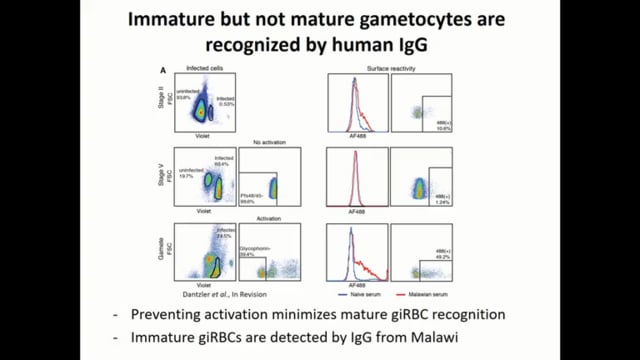Last Updated: 11/06/2020
Characterization of Plasmodium falciparum gametocytes infectiousness determinants in Mali
Objectives
The goal of this proposal is to identify parasite transcriptional signatures and genetic traits associated with Plasmodium stage V gametocyte infectiousness.
The specific objectives of this project are:
- Determine circulating gametocyte infectivity phenotype by Membrane Feeding Experiments
- Identify host humoral factors associated with gametocyte infectivity
- Identify distinct transcriptional signatures associated with gametocyte infectivity
University of Sciences Techniques and Technologies of Bamako (USTTB), Mali
The emphasis on malaria eradication has recently focused attention on malaria transmission from human to the mosquito vector. There is an increased effort for the development of transmission blocking therapies targeting Plasmodium gametocytes and gametes. Membrane feeding assay, which is the gold standard laboratory methods to assess mature gametocyte transmission, shows a mosquito infectivity rate of 50 % irrespective of the presence of circulating mature gametocyte suggesting that some gametocytes are non-infectious and/or unable to produce oocyst. Gametocyte activation and gamete development begins in the human host with an extensive reprogramming to accommodate sexual reproduction. We are hypothesizing that the infectiousness of gametocytes could be due to distinct transcripts and genetic make-up. Therefore the goal of this proposal is to identify Plasmodium transcriptional signatures and genetic traits associated with gametocyte infectiousness.
Cross sectional study.
Jun 2017 — May 2019


